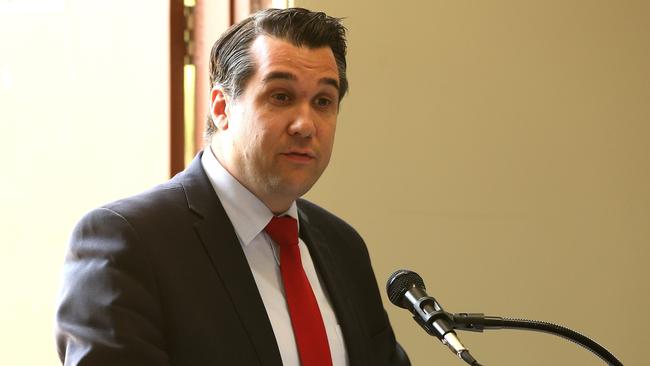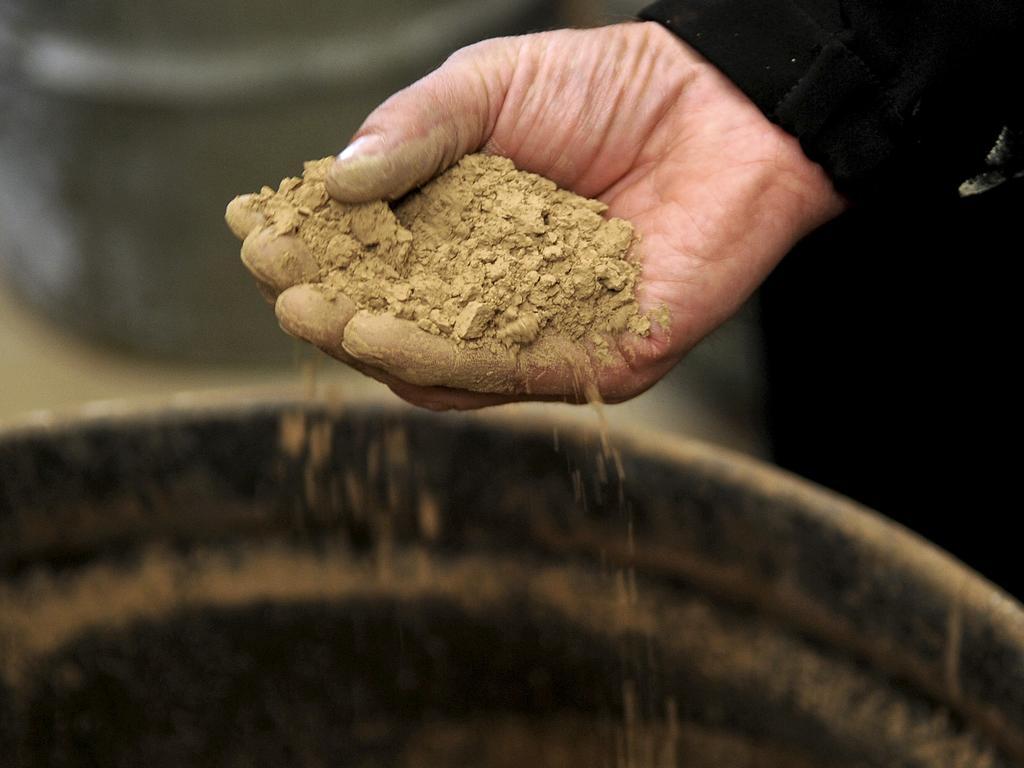
The new minister in charge of the Australian Taxation Office, Michael Sukkar, is about to discover that he has become the quasi minister for innovation and will be deciding Australia’s research grant policy.
I am sure Michael Sukkar has no desire for this power but the ATO is intensifying its vicious program to destroy smaller enterprises, including listed companies, that dare to accept government research grants.
The unsuspecting enterprises gratefully receive the grants and, of course, spend them but then the ATO effectively asks for the money back. The enterprises are then prevented from commercialising their work and many go broke.
The ATO motivations in these manoeuvres are driven by the display of power, not money raising.
In the 45th parliament the previous minister in charge of tax (the title is assistant treasurer) Stuart Robert combined with small business minister Michaelia Cash to do a wonderful job in establishing a small business tax tribunal.
A still angry ATO may have tricked Sukkar into compromising that decision, but more of that later.
Robert and Cash never got around to tackling the ATO’s agenda to destroy slabs of Australian research.
I first encountered the agenda back in 2017, first in the food industry and then when the ATO savagely destroyed one of Australia’s top new technology pioneers, Helen Petaia, whose world-beating technology could not be developed, and she was forced to sell her house.
I pleaded with the then minister for industry, innovation and science Arthur Sinodinos to instruct AusIndustry to warn small businesses that accepting government research grants was high risk because the ATO has become the judge of Australian research, and was likely to effectively ask for the government grant to be returned after adding interest and penalties.
My commentaries are on the web site under the headings “Research and development tax incentives a dangerous hazard to small enterprises”, and “Unfair ATO a dangerous threat to innovation”.
This was an ATO agenda issue that had nothing to do with raising money. In fact, it destroyed revenue because the grant recipient was sent to the wall rather than commercialising its research.
I must emphasise that enterprises do play games with research expenditure and the ATO needs to watch that. But treating government research grants in a way that is akin to a tax avoidance scheme is simply a confirmation that the ATO is more about the exercise of power than boosting government revenue.
Entrepreneurs in unlisted operations usually privately lick their wounds. Listed companies have to go public. Very sensibly the government gave Northern Minerals research grants for its rare earths research. In response the ATO was almost successful in destroying the company
but the world’s need for rare earths. and the potential strategic value of Northern Minerals to the nation, looks like may have thwarted the ATO agenda.
As I understand it there are many tens of similar ATO research agenda cases (some estimates have the number at about 50).
In another example listed Real Energy received $7 million in research grants so that it could research extracting unconventional gas from the Cooper Basin because American technology is not working on the Australian fields.
The ATO appears to have no idea that Australia desperately needs that research and so is disallowing the government-approved research as research for tax purposes.
Like everyone else Real Energy has spent the government money. And they spent more and so are entitled to further grants.
AusIndustry know that this is legitimate research that the nation desperately needs but is so scared of the ATO it is refusing to hand over the extra money.
The whole government research boost program has fallen into disarray because of the actions of a series of power-hungry ATO officials.
Real Energy is a smaller company and the ATO believes that its firepower can force the company into destruction.
Beach Energy, on the other hand, can afford to fight all the way and so has been allowed a government research grant to undertake very similar work.
I plead with the new tax minister Michael Sukkar to stop this ATO power grab nonsense and withdraw all cases that involve second-guessing the new official minister for innovation, Karen Andrews.
If Sukkar does not stop the ATO nonsense then Andrews needs to become a real innovation minister and stand up publicly for past and present government research grant policy.
That does not mean that the ATO should not examine research rorts. But accepting research grants is not a rort.
As I gave been regularly pointing out, high on the ATO agenda is the use of the “cash economy” as an excuse for a massive power grab.
And so not surprisingly, in Yes Minister style, the ATO suggested “one or two minor” cash economy measures to the new minister like not allowing cash payments as a tax deduction (which should have been done years ago).
And then in the style of Yes Minister’s Sir Humphrey Appleby there was an additional item of “housekeeping”: “From 1 July 2019, businesses seeking to tender for Australian Government procurement contracts over $4 million (including GST) will be required to provide a satisfactory statement of tax record (STR) from the Australian Taxation Office”.
It sounds very good, so not surprisingly the new minister approved it.
But it’s a trick.
“A satisfactory statement of tax record” could mean that neither Northern Minerals or Real Energy would be able to tender for government contracts.
Nor would any of the others which are appealing on research. You have to define very carefully what “a satisfactory statement of tax record” means when Australia has an ATO pursuing agendas.
Enterprises can’t go to the small business tax tribunal without an assessment. But presumably an enterprise can have an “unsatisfactory statement of tax record” without an assessment so can’t tender for government contracts.
It looks to me like an attempt to undermine the achievements of Robert and Cash and a second front in attacking the government’s research boost.
A very clear definition of “a satisfactory statement of tax record” is required.


